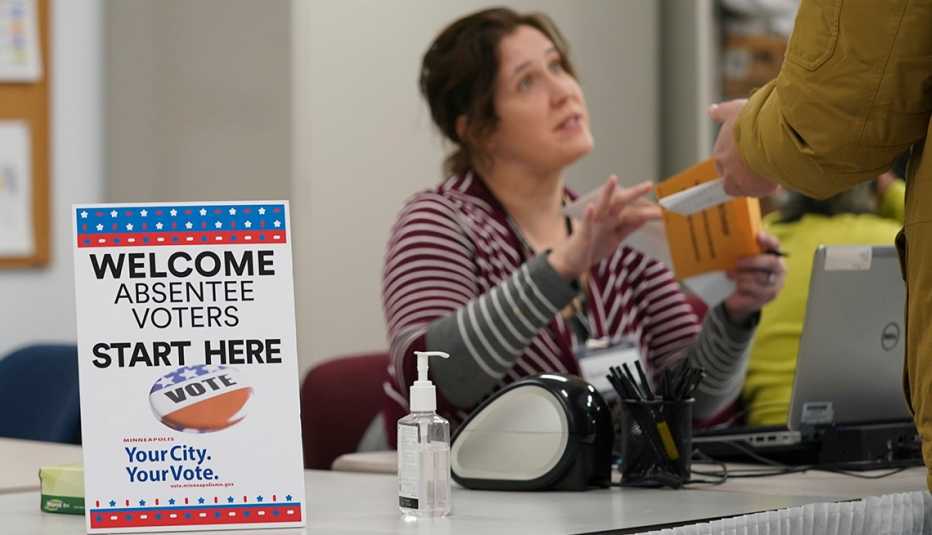Staying Fit


The Iowa caucuses are more than a week away, but millions of Americans are already able to vote.
Early voting in the crush of Super Tuesday states that hold primaries on March 3 amounts to a parallel campaign for the Democratic nomination. While much of the focus is on who will come out on top in the traditional first four voting states, early voting will allow a much broader swath of voters to play a key role in picking the nominee.


AARP Membership— $12 for your first year when you sign up for Automatic Renewal
Get instant access to members-only products and hundreds of discounts, a free second membership, and a subscription to AARP the Magazine.
In Minnesota, in-person early voting began Jan. 17. Vermont's deadline to mail out its absentee ballots was the same day. Many of the 14 Super Tuesday states will offer some form of early voting between now and mid-February.
These states will test the organizational strength of the White House hopefuls. The campaigns must balance the demands of the first four states — Iowa, New Hampshire, South Carolina and Nevada — while also making sure to target potential supporters in the Super Tuesday states that follow.
The biggest early voting state, California, will mail ballots to more than 12 million voters starting Feb. 3, the same day as the Iowa caucuses, though not all of those voters will get a Democratic primary ballot. Colorado, North Carolina and Texas, which offer combinations of mail-in and in-person early voting, are also likely to have a high percentage of early voters, said Michael McDonald, a voting expert who directs the United States Elections Project at the University of Florida.
It's difficult to predict how many people will take advantage of early voting, McDonald said. While early voting offers an opportunity for campaigns to ensure their most intense supporters cast ballots early, many primary voters will wait until they begin seeing the results in earlier voting states in case their preferred candidates drop out. At least one state, Minnesota, gives voters an option to retrieve their ballot and change their votes up to a week before Election Day.
California has by far the largest population of would-be early voters. Paul Mitchell, who runs Political Data Inc., a nonpartisan organization that analyzes and sells voter data, predicts about a quarter of the state's eventual Democratic electorate will have cast ballots by the time Nevada holds its caucuses on Feb. 22. He projects that will increase to 40 percent by the time South Carolina votes on Feb. 29.

































































More on politics-society
Your Guide to 2020 Primary Voting
From ID requirements to absentee voting, what you need to knowExclusive Poll: Women 50 and Older Could Decide the 2020 Election
Almost all plan to vote and a wide majority are still undecidedProviding Facts, Resources to Empower Voters
AARP is going all out to make sure our members know where the candidates stand on important issues